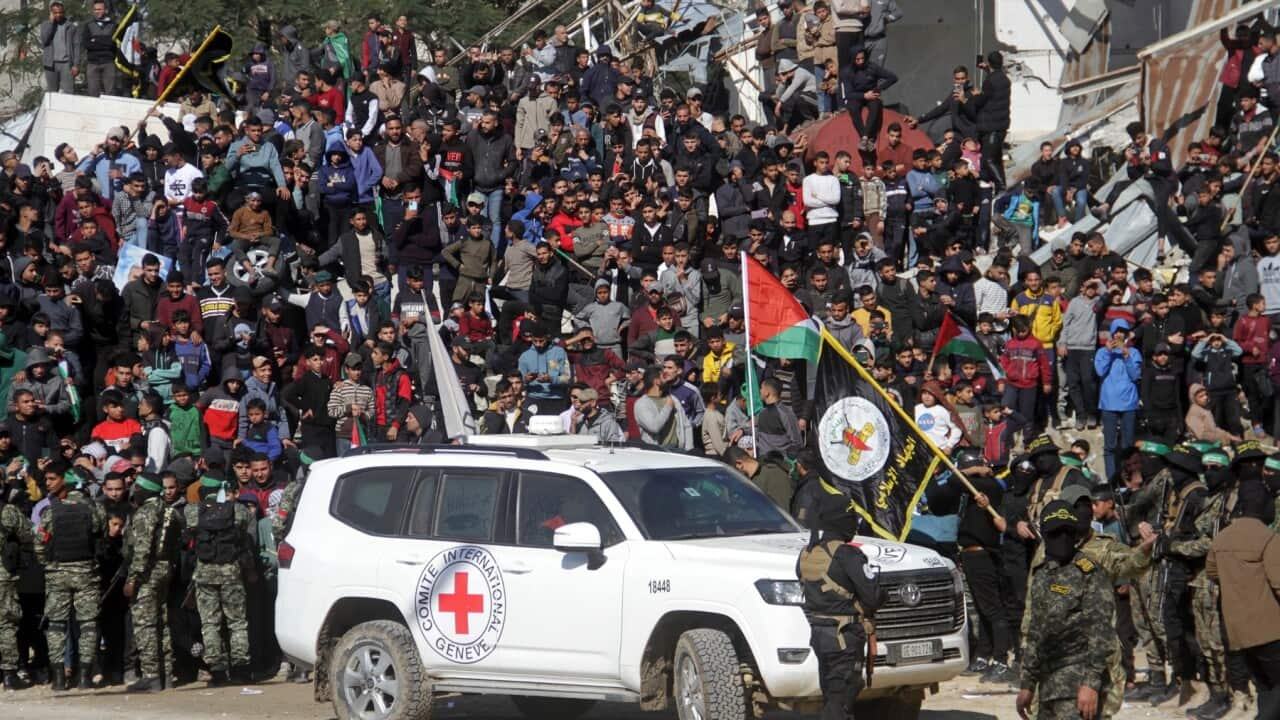TRANSCRIPT
The United Nations Security Council has adopted a United States-drafted resolution backing a proposal for a ceasefire between Israel and Palestinian militants Hamas in the Gaza Strip.
Russia abstained from the vote, while the remaining 14 council members voted in favour.
The US finalised its text on Sunday after six days of negotiations among the Council.
Speaking at the UN, US Ambassador Linda Thomas-Greenfield says the deal would benefit everyone involved in the conflict.
"Colleagues, the ceasefire deal would pave the way toward an enduring cessation of hostilities and a better future for all. As President Biden acknowledged just the other day, the Palestinian people have endured sheer hell in this war started by Hamas. There's an opportunity to chart a different course. Hamas must take it."
The Security Council urges Israel and Hamas to fully implement the deal's terms without delay and without conditions.
Hamas has responded positively to the resolution, saying in a statement it is ready to cooperate with mediators over implementing the principles of the plan.
"Hamas welcomes what is included in the Security Council resolution that affirmed the permanent ceasefire in Gaza, the complete withdrawal, the prisoners' exchange, the reconstruction, the return of the displaced to their areas of residence, the rejection of any demographic change or reduction in the area of the Gaza Strip, and the delivery of needed aid to our people in the Strip."
What does the ceasefire deal include?
US President Joe Biden laid out a three-phase ceasefire plan on May 31.
The deal would start with a six-week full and complete ceasefire in Gaza, with Israeli forces pulling out of populated areas of the Palestinian enclave.
It would also include the release of some hostages taken by Hamas during its October 7 attack on Israel.
This would come in exchange for the release of hundreds of Palestinian prisoners.
Some Security Council members are questioning whether Israel will accept the plan to end the fighting in Gaza.
Riyad Mansour is the Palestinian ambassador to the United Nations.
"Now the burden is on the Israeli side to implement this resolution and to have the ceasefire immediately in place, and also to have the exchange, including the release of Palestinian prisoners, and to make this ceasefire a permanent ceasefire."
Israeli Prime Minister Benjamin Netanyahu says Mr Biden only presented parts of the proposal, and insists any talk of a permanent ceasefire before it has dismantled Hamas’ military and governing capabilities is a non-starter.
Israel's Deputy Ambassador to the United Nations, Noa Furman, says Israel will not let Hamas pose an ongoing threat to Israel.
"Colleagues, Israel stands firm on our principles and they have not changed. We will continue until all of the hostages are returned and until Hamas military and governing capabilities are dismantled. These have been our goals from day one. Just as President Biden stated on May 31st, Hamas must not stay in power. Israel will not let Hamas rearm or regroup so that Gaza can pose a threat to Israel."
For months, negotiators from the US, Egypt and Qatar [[cutter]] have been trying to mediate a ceasefire.
More than 1,200 people were killed and over 250 taken hostage by Hamas on October 7, according to Israel's tallies.
One hundred hostages reportedly remain captive in Gaza.
Gaza health authorities says more than 37,000 Palestinians have so far died in the conflict.













